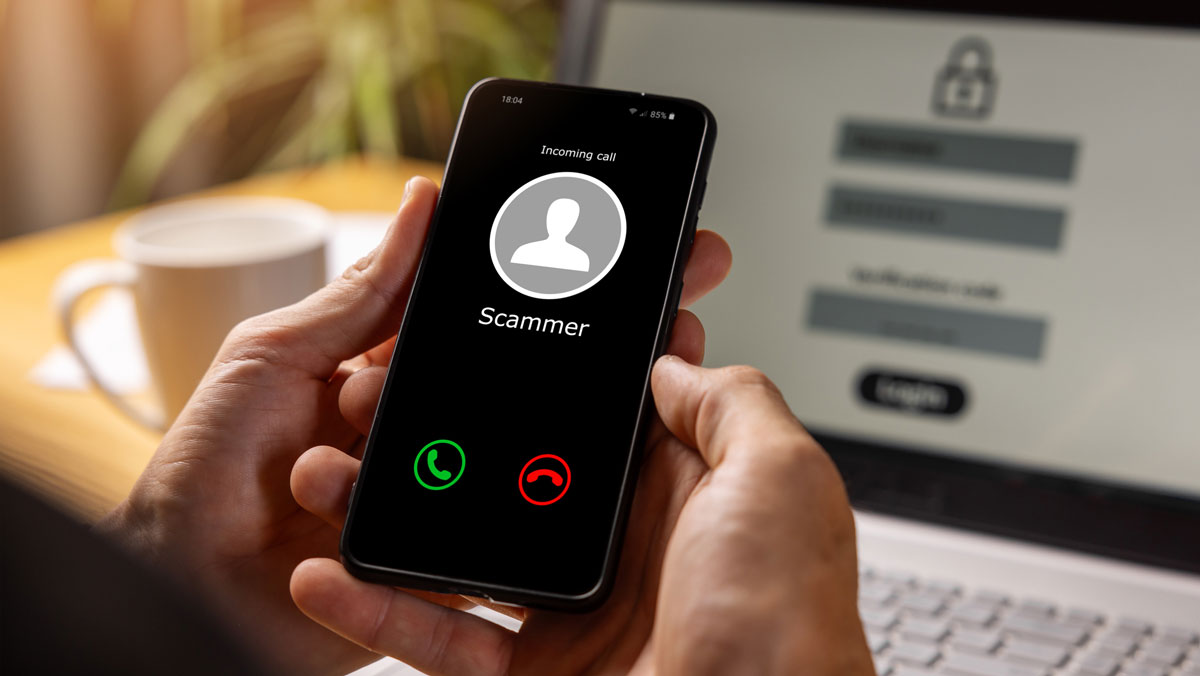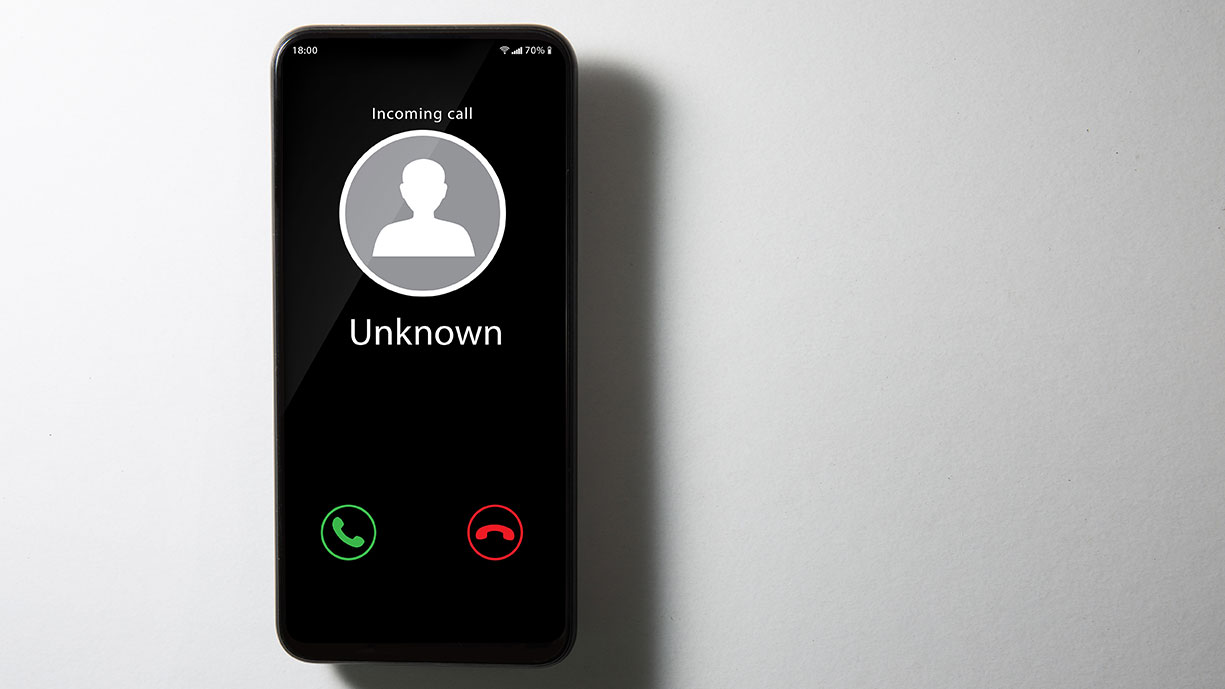
The holidays are a time of family togetherness and celebration. Scammers know you’re distracted, busy, and emotional. Don’t get taken in by these 12 common holiday scams or similar schemes. Otherwise, you might be footing the bill for 12 drummers drumming and all the rest!
1. Text trickery
Preying on your business and hoping your guard is down, scammers will try to spoof legitimate financial institutions. They falsely claim a fraudulent transaction has occurred on your account, then attempt to “stop” the fraud by gathering your online banking credentials (username or password) or try to get you to reveal your full credit or debit card numbers, including the 3-digit code on the back. Read more on our blog: How Text Message Scams Typically Work.
2. Fake package notifications
You’ll be receiving unexpected packages this season. Scammers know this and will send realistic-looking delivery failure notifications. They expect you to follow up with them and reveal personal identification information. Head to your local post office or call the parcel delivery service to check with a clerk before you hand over information on the internet.
3. Fictitious charities
Fraudsters set up fake charities every time there’s a major disaster, and also during the holidays when the giving spirit is high. Leaflets and phone calls from organizations with familiar-sounding names to legitimate charities will soon appear. To be safe, don’t give to any charity with whom you didn’t start the contact, and do your research. Check out these tips from the FTC on what to look for so any charitable donations go where you intend, or check out the Charity Search from Michigan’s Attorney General.
4. Must-have gift scams
Every season has its “it” gift. You’ll know it by the high demand, low supply, and hugely inflated price. Almost on cue, websites will pop up offering the rare item at an unbelievably low price. This is a scam – the advertiser doesn’t have the product and is only using the offer to harvest personal information or bilk you of your hard-earned money through sites like Craigslist or eBay, where they will seek payment through PayPal and never send the item you purchased.
5. Christmas catfishing
“Catfishing” means pretending to be someone else, most likely seeking a romantic partner on the internet to dupe people. Scammers take advantage of the loneliness the holidays can evoke to trick people out of gifts or worse. As tempting as it is to believe in love stories at Christmas as the plot of every holiday movie suggests, keep your feet on the ground and practice safe internet dating. Read more on romance scams in our blog post Fall in Love, Not for Scams.
6. Festive spam
We’ve all gotten used to filtering out spam in our email. Now prepare yourself for holiday-themed spam. Messages will suggest that off-brand expensive watches and cheap pharmaceuticals would make excellent gifts. Be careful, though, because these companies might just be in the market for your personal information or taking your money without ever sending the goods.
Also, be careful when opening emailed cards (e-cards). Scammers have designed some with malicious code. They can install data leaching programs on your computer and do untold damage. Don’t click links in emails unless you know the sender. Even then, if it looks a little out of the ordinary, it probably is. Check out more cybersecurity tips here.
7. Bogus gift cards
There’s a bonanza of savings to be had buying gift cards through second-hand retailers. Be careful, though, because many of these retailers might be a front for scammers. Gift cards may be invalid, used or forgeries, and you’ll be left holding the bill. If you’re looking for a simple, use-anywhere, and safe gift card, stop in to your local MSGCU branch office to pick one up.
8. Porch pirates
Getting packages delivered right to your door is quite convenient – for you, and unfortunately for criminals, too. These grinches take packages right off of porches, leaving you empty handed after your thoughtful shopping. The best deterrent for a porch pirate is not to have anything to steal, so make sure to collect your packages as soon as possible. Plus, keep your porch well-lit and even leave lights and the TV on when you’re not home.
9. Holiday vacation scams
It can get cold and miserable here in Michigan, so it’s tempting to go someplace tropical for a few weeks. If you’re thinking about getting away, be careful of unrealistic prices or “too-good-to-be-true” travel offers. Scammers have been setting up phony travel sites to harvest personal information. Only book through reputable websites.
10. Devious reindeer games
If you’re facing a five-hour flight and a three-hour layover, it’s fantastic to have a distracting mobile game to pass the time. Be careful, however, not to download the wrong one. Mobile games can harvest data from your phone or steal password information. Always do a quick search to check the validity of the app you’re downloading and read the permissions carefully. A fun game should never ask for permission to send texts or send information to third parties.
11. Juice jacking
There was a lot of news coverage earlier this year following a warning from the FBI to avoid public charging stations. Criminals could use public USB ports to add malware or other malicious software to your devices. Make sure to pack your own charger and cable and plug directly into an outlet instead of using a charging station when you’re on the go.
12. Mobile malice
Be wary of “season-themed” apps that perform frivolous functions, yet demand top-level security access. An app that makes it look like there’s snow on your background image doesn’t need to send or receive texts. Such an app might send premium text messages and leave you holding the bill.
MSGCU recommends these tips to help keep your assets and information safe, during the holiday season and throughout the year:
- Don’t engage with unknown/unexpected phone numbers, texts, social media messages or other communications you may receive.
- Never click unknown links, especially from numbers you do not recognize or expect a link from.
- If a deal seems too good to be true or someone is pushing you to buy, it’s probably a scam.
- Don’t send money to people you have only met online.
- Never share your password or security pins with others.
- Keep close tabs on your MSGCU account. Log in to the MSGCU Mobile App or Online Banking often and review your monthly statements. Contact MSGCU if anything doesn’t look correct.
- Change your password often and use complex passwords for your MSGCU account. Read more about password protection.
- Set up alerts on your account for added visibility on account changes or transactions.
- Contact us at (866) 674-2824 immediately if you believe your identity has been compromised.
Staying informed and aware of these common scams can help prevent you falling victim. We wish you a safe and happy holiday season.
Category: Security
« Return to "Blog"




























